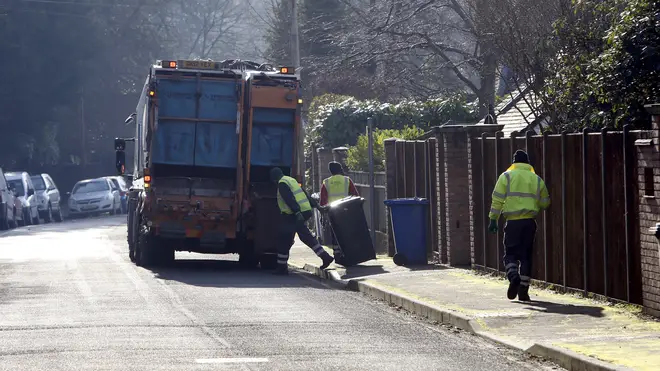
Ben Kentish 10pm - 1am
7 December 2021, 08:04

The UK competition watchdog said the Veolia and Suez deal could lead to a loss of competition in the supply of key waste and recycling services.
The near-13 billion euro (£11.1 billion) merger between French waste and water management giants Veolia and Suez could lead to higher prices for UK councils and taxpayers, according to Britain’s competition watchdog.
The Competition and Markets Authority (CMA) said the tie-up, which was announced earlier this year, could lead to a loss of competition in the supply of key waste and recycling services.
Veolia and Suez are two of the biggest suppliers of waste management services to councils and businesses in the UK, offering services from the collection of waste to the operation of facilities for composting and incineration and landfill sites.
We’ve found that Veolia’s purchase of Suez raises competition concerns.
These companies are 2 of the largest UK suppliers of #WasteManagement services to councils and businesses in the UK.
Read more: https://t.co/Ikp7mZYpAb pic.twitter.com/smfeihskTT
— Competition & Markets Authority (@CMAgovUK) December 7, 2021
They also operate globally and the deal is being scrutinised by regulators worldwide.
The CMA said it had received complaints from customers and other firms in the market during its initial investigation and that it had found a number of competition concerns which could see prices increase for councils and a reduced quality of services, with a knock-on effect on taxpayers.
The CMA said it will refer the deal for an in-depth probe if Veolia and Suez do not put forward suitable proposals to address its concerns within five working days.
Chief executive Andrea Coscelli said: “Councils spend hundreds of millions of pounds on waste management services.
“Any loss of competition in this market could lead to higher prices for local authorities, leaving taxpayers to foot the bill, and reduced innovation to achieve net-zero targets.
“Everyone in the UK uses waste and recycling services in some way; it is therefore vital that this deal is subject to more detailed scrutiny if our concerns aren’t addressed.”
The CMA added that particular concerns centre on the fact that the two firms are among only a small number of suppliers in the UK which are able to service the largest and most complex waste management contracts with councils.
It also flagged worries over the impact on several water management markets, where a lack of competition after the merger could mean that industrial customers would also have to pay higher prices.